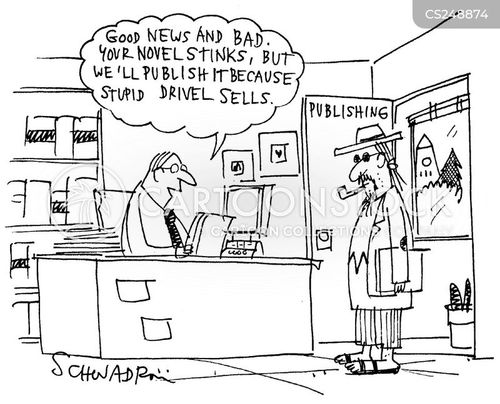Paul Whybrow
Full Member
In my reading choices, for fiction at least, I rather avoid best-selling titles that are creating a lot of fuss in the media and appearing on shortlists for literary prizes. I prefer to read them some time later.
Occasionally, I'll get my hands on a trendy novel shortly after it's published. This happened with George Saunders' Lincoln In The Bardo, Francis Spufford's Golden Hill and Sebastian Barry's Days Without End. Between them, they won at least six literary awards, and they deserved them; I particularly enjoyed Golden Hill, which is ripe for a sequel.
Not all well-reviewed and highly-publicised novels are worthy of the attention they receive. I wondered if I was being churlish in dismissing authors who've been published, while I'm still querying like a beggar at the tradesman's entrance, but I recently came across a quote from novelist Rose Tremain: “I hardly finish any books. Our so-called literary world is now choked with the mediocre and the banal, piles of which arrive through my letter box, soliciting endorsements, every week.”
Last year, Arts Council England published a report lamenting the decline in sales of literary fiction. One of the reasons for the slump, is that a lot of highfalutin writing is all pretension and low in quality. To my mind, a good example of this is The Essex Serpent, which gained author Sarah Perry so much attention that I thought she'd used pixie dust to charm the critics. I found it to be plodding, lifeless and unconvincing with weak characterisation. I didn't care what happened to any of the protagonists, and was glad to finish it. It made me think of the old adage about not judging a book by its cover, for this one had been, as the design of The Essex Serpent's book jacket is exquisite, so much so that it won the Books are My Bag Beautiful Book Award for artist Peter Dyer.

The Essex Serpent had fantastic sales, partly because it looked nice....It also rode the wave of favourable newspaper reviews and word of mouth, with readers buying it because they were meant to like it.
A lot of fiction feels formulaic these days, with crime novels and thrillers in particular becoming as predictable as action movies—many of which follow a template, that determines there should be a chase scene every 20 minutes, a fight scene at 12 minute intervals and how often sex should be mentioned or happen.
In writing a series of crime novels myself, I'm wary of falling into bland repetition. Certainly, there's a comfort in having a pattern that regular readers enjoy, with the ups and downs of the plot guiding them through the story, but it's good to throw in unexpected surprises. I recently gave up on reading a suspense novel, written by veteran author Mary Higgins Clark, who is hugely experienced and successful, not because it was badly written, but more because it was slickly written. It felt like she was going through the motions of something she once enjoyed doing thirty books ago. Her style reminded me of a sales catalogue for luxury goods. It was all surface, with no depth.
But what do I know? She's found a successful formula, with legions of fans, and has sold millions of books. (But, it's still fun to be a bit bitchy sometimes.... )
)
With increased attention paid to cultural appropriation and the #MeToo Movement, there are sure to be more balanced treatments of contentious issues, but, there might be a diluting effect—with authors afraid to speak out in a way that contradicts what is held to be politically correct. Meek and mild writing isn't stimulating.
Are there any authors whose success mystifies you?

Occasionally, I'll get my hands on a trendy novel shortly after it's published. This happened with George Saunders' Lincoln In The Bardo, Francis Spufford's Golden Hill and Sebastian Barry's Days Without End. Between them, they won at least six literary awards, and they deserved them; I particularly enjoyed Golden Hill, which is ripe for a sequel.
Not all well-reviewed and highly-publicised novels are worthy of the attention they receive. I wondered if I was being churlish in dismissing authors who've been published, while I'm still querying like a beggar at the tradesman's entrance, but I recently came across a quote from novelist Rose Tremain: “I hardly finish any books. Our so-called literary world is now choked with the mediocre and the banal, piles of which arrive through my letter box, soliciting endorsements, every week.”
Last year, Arts Council England published a report lamenting the decline in sales of literary fiction. One of the reasons for the slump, is that a lot of highfalutin writing is all pretension and low in quality. To my mind, a good example of this is The Essex Serpent, which gained author Sarah Perry so much attention that I thought she'd used pixie dust to charm the critics. I found it to be plodding, lifeless and unconvincing with weak characterisation. I didn't care what happened to any of the protagonists, and was glad to finish it. It made me think of the old adage about not judging a book by its cover, for this one had been, as the design of The Essex Serpent's book jacket is exquisite, so much so that it won the Books are My Bag Beautiful Book Award for artist Peter Dyer.
The Essex Serpent had fantastic sales, partly because it looked nice....It also rode the wave of favourable newspaper reviews and word of mouth, with readers buying it because they were meant to like it.
A lot of fiction feels formulaic these days, with crime novels and thrillers in particular becoming as predictable as action movies—many of which follow a template, that determines there should be a chase scene every 20 minutes, a fight scene at 12 minute intervals and how often sex should be mentioned or happen.
In writing a series of crime novels myself, I'm wary of falling into bland repetition. Certainly, there's a comfort in having a pattern that regular readers enjoy, with the ups and downs of the plot guiding them through the story, but it's good to throw in unexpected surprises. I recently gave up on reading a suspense novel, written by veteran author Mary Higgins Clark, who is hugely experienced and successful, not because it was badly written, but more because it was slickly written. It felt like she was going through the motions of something she once enjoyed doing thirty books ago. Her style reminded me of a sales catalogue for luxury goods. It was all surface, with no depth.
But what do I know? She's found a successful formula, with legions of fans, and has sold millions of books. (But, it's still fun to be a bit bitchy sometimes....
With increased attention paid to cultural appropriation and the #MeToo Movement, there are sure to be more balanced treatments of contentious issues, but, there might be a diluting effect—with authors afraid to speak out in a way that contradicts what is held to be politically correct. Meek and mild writing isn't stimulating.
Are there any authors whose success mystifies you?





